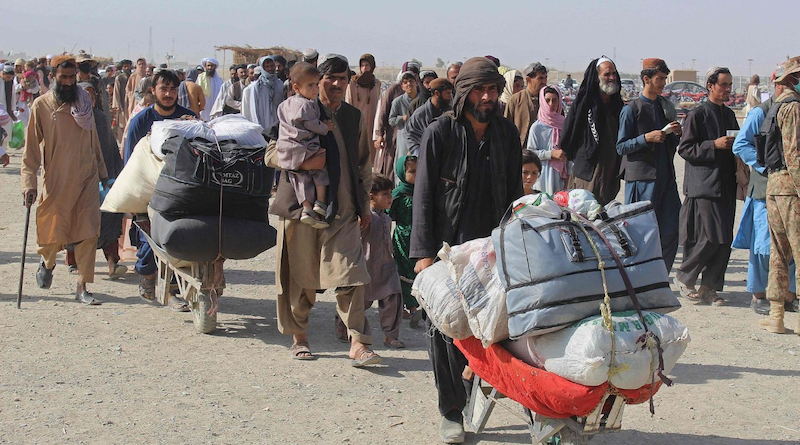
Afghan refugees have been a significant concern for Pakistan over the past several years, with their impact projected to intensify in the coming years. As these refugees flee conflict in their homeland, they are forming a large and growing population in Pakistan, particularly in the region of Baluchistan and Khyber Pakhtunkhwa.
According to official reports, about 250, 000 Afghans have resided in Pakistan after the Taliban seized power in August 2021. Now Pakistan is home to more than 3 million Afghan refugees. While the country faces its own instability, the refugee crisis is one of the most pressing. Pakistan must confront multiple challenges simultaneously.
The presence of Afghan refugees in Pakistan has led to various social and economic problems for local citizens and has placed immense strain on the country’s resources. One of the major issues in Pakistan is the limited budget to facilitate its own citizens. The lead population is caused poverty for the host and refugees. Many Afghans have come to Pakistan for healthcare, education, employment, or temporarily find safety or transit to another country where Pakistanis are facing difficulties due to this chaos.
The impact on the local job market and increased competition for basic resources are intensifying tensions in the nation. The Pakistan market provides opportunities to Afghan businesses and contributes to the Afghan economy, directly impacting Pakistani Businesses and communities. Its influences can be seen in Pakistani cuisine, music, language, and attire. This cultural influence has risked the Pakistani culture and traditions.
The overcrowded living spaces, such as refugee camps or temporary shelters are making it difficult to maintain proper hygiene and sanitation in the country. The host community already had limited access to clean water and sanitation facilities, and due to the large population, both communities are bothered. The country is struggling to provide adequate access to drinkable water and hygiene facilities for all residents. Some of the refugees came from rural areas and are not familiar with the specific hygiene standards. They are settled in undeveloped areas with the host communities. As a result, it can be seen the people in these areas are not following proper hygiene practices and have a lack of awareness about the importance of maintaining cleanliness to prevent diseases. This is leading to unsanitary conditions and increasing health risks in Pakistan.
Regarding education and healthcare, Afghan and host communities in Pakistan face challenges in accessing quality education and healthcare. Limited resources and infrastructure have strained local schools and hospitals, affecting the quality of services available to both communities in the future at a high range. The volatile security situation in Afghanistan has often spilled over into Pakistan. The increased military operations, displacement, and disruption of daily life in past years have disturbed the public. The migration has also caused terrorism fear among the citizens. Immediate efforts must be made by the government and other organizations to improve access to these essential services for all residents.
Though Pakistanis have shown generosity and hospitality towards Afghan refugees, they are still facing problems and challenges. Providing equal access to resources for all is vital to the regime. Ensuring that host communities have the opportunity to participate in decision-making processes that affect their lives helps to create a sense of ownership and empowerment. This can be achieved to provide platforms that allow the voices to be heard. Implementing comprehensive integration programs that provide support for refugees in areas such as language, acquisition, vocational training, and cultural orientation can facilitate their successful integration into the host society.
Achieving equal rights for both Pakistanis and Afghans in the country requires a collaborative effort from governments, NGOs, and the general public. The government must examine the impacts on this country and ultimately offer quick possible approaches to address the challenges. By recognizing the value of diversity and upholding the principles of human rights, with the help of organizations, society can create an environment where everyone can thrive and contribute to the common good in the future.
